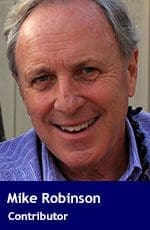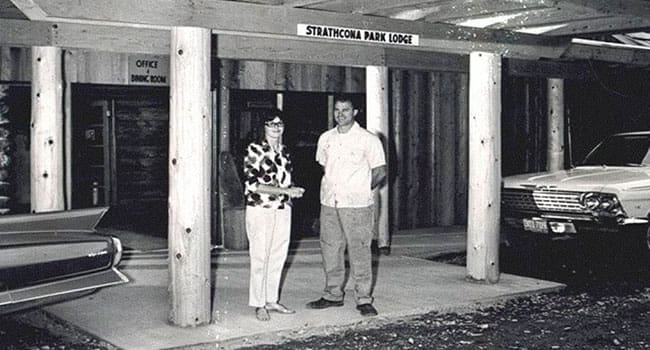 For some reason, I keep on having to learn that people who spend their lives close to nature have the most direct insights into how the natural world functions. It’s just happened again.
For some reason, I keep on having to learn that people who spend their lives close to nature have the most direct insights into how the natural world functions. It’s just happened again.
Over the past weekend, 200 friends of Vancouver Island’s Strathcona Park Lodge gathered there to celebrate the birthdays of Myrna Boulding and Brian Gunn, the lodge’s elders – 81 and 79. Both were feted as outdoor educators, by a barn-full of some of Canada’s most distinguished practitioners of mountaineering, kayaking, canoeing, trekking and outdoor leadership.
David Boulding, now 64 and nephew of Strathcona Park Lodge founder, Jim Boulding (who died in 1986), made a signal comment:
“In Plato’s academy, the intellectual elites gathered to instruct the children of the elites. People with privilege were prepared for a similar life, where their needs would be looked after by slaves. Slaves would never have a chance to rise above their station in life.
“In the tradition of outdoor education, the way Jim Boulding practised it,” he continued, “we all learned to move at the speed of the slowest person on the hike. It was inclusive, organic and very democratic. And you know what – it produces happy warriors. ”
As his remarks implied, society still follows two paths to knowledge – one for the elites and one available to all. Universities now supply the former and outdoor educators the latter. While both systems lecture about risk, one is basically theoretical in its orientation. The other teaches lessons by observation and sometimes by hard knocks. It teaches that wisdom is gained through direct experience. It has to be earned and cannot be bought.
Outdoor education as taught for nearly 60 years at Strathcona embraces what another great teacher, Rob Wood, one of the pioneers of ice climbing in Canada, calls “thoughtful risk.” Rob made first ascents of now famous routes up Cascade Falls and Takakkaw Falls in the Rockies, and pioneered new routes on Mount Waddington and Vancouver Island’s toughest alpine face – Colonel Foster. He also is fond of quoting Jim Boulding.
“I never was a fan of top roping. (Top roping is the climbing technique of attaching a safety rope to a climber, running from the foot of a route through an anchor system at the top of the route, and back down to a harness attached to the climber.)
“You need to learn to carefully assess and embrace risk,” Wood said. “That is how you truly connect with something important. That is what Jim Boulding meant when he spoke of the happy warrior philosophy. Today’s world of legal releases, lawsuits and excessive caution denies connectivity. It weakens the human spirit.”
I am inclined to agree. As an outdoor educator at Strathcona Park Lodge in the 1970s, I worked alongside Jim Boulding on dozens of West Coast Vancouver Island adventures involving travel by kayaks, repurposed motorized herring skiffs, zodiacs, tin boats, and endless bushwhacking through tropical forests of salal and Devil’s club. No one ever required a medevac out to hospital. Some of this was luck; a bigger portion was careful planning, risk assessment, and “keeping a weather eye open.” What everyone took away from these trips was what Boulding called “quality experience – something you never forget.”
Another great contributor to Strathcona’s West Coast outdoors programming and its evolving educational experience, was Ray Williams, a Moachaht elder living in Yuquot (called Friendly Cove by Captain Cook when he arrived in 1778). Ray was and is a consummate expert in distilling wisdom into pithy phrases.
On one occasion in the mid-1970s, I asked him to recall all of his life-long coastal travel and navigation experience, and relate the most important lesson of all. He wrinkled his brow and thought for some time before he answered, simply: “Go early.”
That is classic happy warrior advice: succinct, available to all who ask, and time-tested. No one could put it better as you plan to leave your safe camp and paddle out on the open ocean. It is knowledge learned from quality experience, held in the mind of a happy warrior, and tested by risk.
Mike Robinson has been CEO of three Canadian NGOs: the Arctic Institute of North America, the Glenbow Museum and the Bill Reid Gallery. Mike has chaired the national boards of Friends of the Earth, the David Suzuki Foundation, and the Canadian Parks and Wilderness Society. In 2004, he became a Member of the Order of Canada.
The views, opinions and positions expressed by columnists and contributors are the author’s alone. They do not inherently or expressly reflect the views, opinions and/or positions of our publication.


